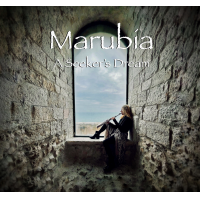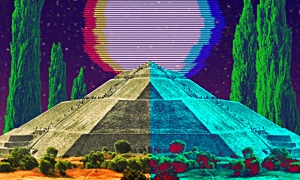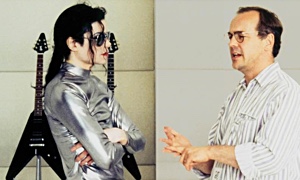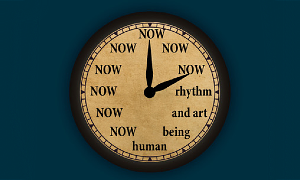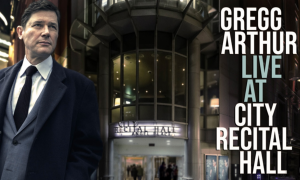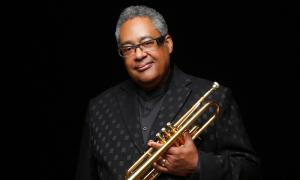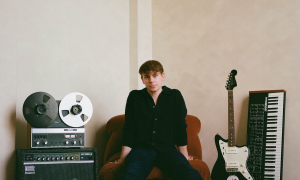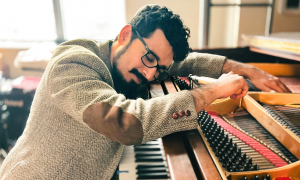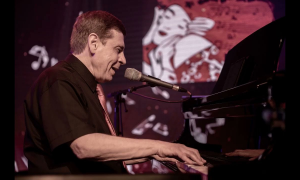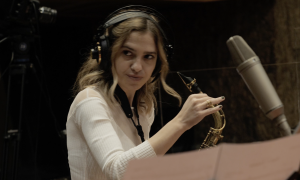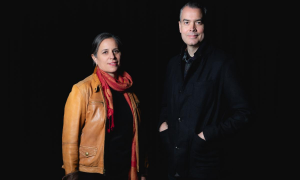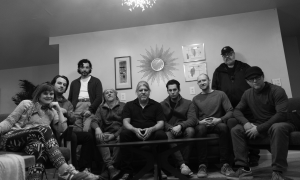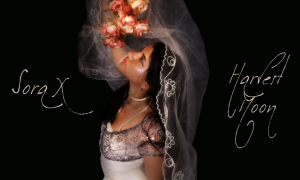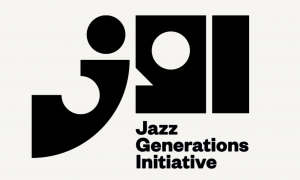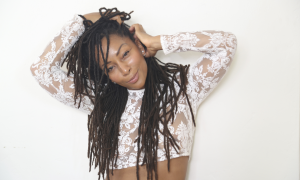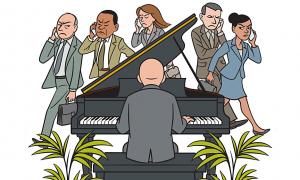Over the past few weeks, jazz writers and researchers once again have been burning up the web with a Hatfield v. McCoy perennial: Is jazz dead or dying? Those who argue that jazz is on the ropes point out that album sales and audience knowledge and interest have been steadily declining.
They also point out that no new jazz forms have emerged in some time and that live jazz can't possibly compete with the visual and sonic excitement generated on stage by other forms of music. They also say that the marketplace isn't there in sufficient enough numbers to expect a comeback or resurgence that matches what existed even in the early 1970s. [Pictured: Johnse Hatfield]
Those who counter this view insist that jazz's popularity is on the rise—that music schools are teeming with eager students, that concerts and festivals are jammed worldwide, and that all sorts of new types of jazz hybrids are surfacing.
Personally, I don't have an opinion one way or the other. My passion for the music centers on the '40s, '50s and part of the '60s, and I always find plenty of music to buy on CD or download. What happens going forward on stage is of less import to me compared to the availability of jazz recordings. I assume that live jazz, like other forms of narrowly appreciated art, will go on forever. But expecting some kind of Twilight Zone scenario where jazz suddenly becomes mainstream music again seems like wishful thinking.
If I had a magic wand, our entire culture would return to 1958, when exceptional poets, painters, writers, critics and musicians mattered. Today, the scene is dominated by 13-word tweets, housewives singing about being tardy for the party, and dysfunctional families sitting on TV sofas crying about something horrible that happened to them. [Pictured: singing Atlanta housewife Kim Zolciak]
What I can tell you, however, is that the so-called “Jazz is dead" riff isn't new. Jazz musicians and jazz business people have been singing those blues for some time. Case in point: While doing research recently for a project, I came across an article in Variety that banged the jazz drum slowly. The headline: “Almost Nothing Left of Jazz in U.S., Complains Impresario Norman Granz." The year was 1964.
Granz by then was living in Geneva, Switzerland, and was promoting concerts in Europe, Asia and South America while managing Ella Fitzgerald. He wasn't permitted to record for seven years as part of his contract following the sale of Verve to MGM in 1960. Here's what he had to say to a Japanese Variety reporter in Tokyo (I've moved all of Granz's quotes in the article together):
“Jazz was never really big in the United States, and now there's almost nothing left. Except for the years between 1948 and 1951—when people were seeking release from wartime emotions and there was no competitive music for young people—jazz never really had a commercial vogue in the U.S. That was the peak for what it was.
“Benny Goodman and Artie Shaw were not really jazz as such. They were basically jazz bands. Kids were going to luxurious ballrooms [not jazz clubs or concerts halls]. I don't care what figures anybody may cite about the sale of records in those days. They're talking about records costing 35 cents.
“I'm the only one who really made money on jazz. And when I had my last JATP tour in the U.S. in 1957, jazz was already finished.
“[Jazz] festivals had a lot to do with it. In my kind of tour we had to play 50 cities, although 15 cities would subsidize the rest of it. You had to play that long to [convince] a Gene Krupa to break up his band and come with us. You would have to sign him for 10 weeks.
“You would not only hit Detroit, for example, but Flint. Saginaw and the other cities nearby. But now, if there's a jazz festival in the area, it kills the whole territory. And festivals are finished, too. It's sufficient evidence to note that no festival supports itself.
“Jazz blew it in terms of young people. They have turned to things that have the beat. So there's no new crop of fans. And since that has been going on for some years, there are few young adult fans.
“I rather think that the kind of music being passed off today as good jazz has not attracted as many people as it might have. Also, folk music has drained off a tremendous amount of the potential jazz audience."
They also point out that no new jazz forms have emerged in some time and that live jazz can't possibly compete with the visual and sonic excitement generated on stage by other forms of music. They also say that the marketplace isn't there in sufficient enough numbers to expect a comeback or resurgence that matches what existed even in the early 1970s. [Pictured: Johnse Hatfield]
Those who counter this view insist that jazz's popularity is on the rise—that music schools are teeming with eager students, that concerts and festivals are jammed worldwide, and that all sorts of new types of jazz hybrids are surfacing.
Personally, I don't have an opinion one way or the other. My passion for the music centers on the '40s, '50s and part of the '60s, and I always find plenty of music to buy on CD or download. What happens going forward on stage is of less import to me compared to the availability of jazz recordings. I assume that live jazz, like other forms of narrowly appreciated art, will go on forever. But expecting some kind of Twilight Zone scenario where jazz suddenly becomes mainstream music again seems like wishful thinking.
If I had a magic wand, our entire culture would return to 1958, when exceptional poets, painters, writers, critics and musicians mattered. Today, the scene is dominated by 13-word tweets, housewives singing about being tardy for the party, and dysfunctional families sitting on TV sofas crying about something horrible that happened to them. [Pictured: singing Atlanta housewife Kim Zolciak]
What I can tell you, however, is that the so-called “Jazz is dead" riff isn't new. Jazz musicians and jazz business people have been singing those blues for some time. Case in point: While doing research recently for a project, I came across an article in Variety that banged the jazz drum slowly. The headline: “Almost Nothing Left of Jazz in U.S., Complains Impresario Norman Granz." The year was 1964.
Granz by then was living in Geneva, Switzerland, and was promoting concerts in Europe, Asia and South America while managing Ella Fitzgerald. He wasn't permitted to record for seven years as part of his contract following the sale of Verve to MGM in 1960. Here's what he had to say to a Japanese Variety reporter in Tokyo (I've moved all of Granz's quotes in the article together):
“Jazz was never really big in the United States, and now there's almost nothing left. Except for the years between 1948 and 1951—when people were seeking release from wartime emotions and there was no competitive music for young people—jazz never really had a commercial vogue in the U.S. That was the peak for what it was.
“Benny Goodman and Artie Shaw were not really jazz as such. They were basically jazz bands. Kids were going to luxurious ballrooms [not jazz clubs or concerts halls]. I don't care what figures anybody may cite about the sale of records in those days. They're talking about records costing 35 cents.
“I'm the only one who really made money on jazz. And when I had my last JATP tour in the U.S. in 1957, jazz was already finished.
“[Jazz] festivals had a lot to do with it. In my kind of tour we had to play 50 cities, although 15 cities would subsidize the rest of it. You had to play that long to [convince] a Gene Krupa to break up his band and come with us. You would have to sign him for 10 weeks.
“You would not only hit Detroit, for example, but Flint. Saginaw and the other cities nearby. But now, if there's a jazz festival in the area, it kills the whole territory. And festivals are finished, too. It's sufficient evidence to note that no festival supports itself.
“Jazz blew it in terms of young people. They have turned to things that have the beat. So there's no new crop of fans. And since that has been going on for some years, there are few young adult fans.
“I rather think that the kind of music being passed off today as good jazz has not attracted as many people as it might have. Also, folk music has drained off a tremendous amount of the potential jazz audience."
This story appears courtesy of JazzWax by Marc Myers.
Copyright © 2025. All rights reserved.










